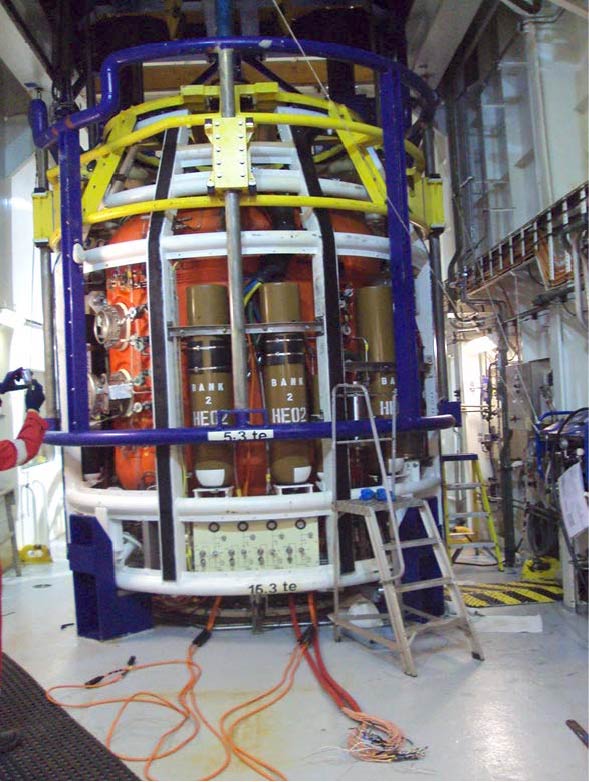Uncontrolled descent of diving bell
A member has reported an incident which occurred whilst conducting diving operations from a diving support vessel (DSV). The incident did not lead to any injury or health consequences, but could potentially have been fatal.
As the diving bell was being lowered into the moonpool, two uncontrolled descents were experienced. During the second uncontrolled descent, the bell’s umbilical was damaged leading to a loss of bell pressure. Investigations have shown that the system had been placed in an unsafe condition following operator error and that the programmable logic controller (PLC) had failed to safeguard against these errors. Several layers of additional barriers and backups constrained the actual consequences of the incident to material damage only.

The investigation revealed the following:
- The implications of introducing PLC technology in to the diving industry may not have been fully understood, and the related roles, responsibilities and competencies of both the technical and operational personnel were not sufficiently clarified;
- Although the risk management documentation was advanced for a DSV, there was evidence that it lacked continuity and integrity – operator error was not considered;
- Emergency response to reasonably foreseeable hazardous conditions was not sufficiently defined; for the most effective use, the ergonomic layout, checklists, training and drills requires optimisation. Emergency related processes were not audited for effectiveness or for feedback to improve the related technical, procedural or competency systems;
- There was insufficient supervisory understanding of both the bell launch and recovery control system. A lack of situational awareness was needed to understand and control the human and equipment response to a complex and hazardous situation;
- During the development or construction phases, the bell launch control systems were not assigned a SIL rating and consequently, lacked the correct level of safety scrutiny as that given to other, more highly rated, systems;
- The investigation team identified a number of deviations under various disciplines that the members audit and compliance organisations had failed to detect.
Members’ attention is drawn to the IMCA document Emergency isolation of gas circuits in the event of a ruptured bell umbilical.
Safety Event
Published: 21 January 2014
Download: IMCA SF 01/14
IMCA Safety Flashes
Submit a Report
IMCA Safety Flashes summarise key safety matters and incidents, allowing lessons to be more easily learnt for the benefit of all. The effectiveness of the IMCA Safety Flash system depends on Members sharing information and so avoiding repeat incidents. Please consider adding [email protected] to your internal distribution list for safety alerts or manually submitting information on incidents you consider may be relevant. All information is anonymised or sanitised, as appropriate.
IMCA’s store terms and conditions (https://www.imca-int.com/legal-notices/terms/) apply to all downloads from IMCA’s website, including this document.
IMCA makes every effort to ensure the accuracy and reliability of the data contained in the documents it publishes, but IMCA shall not be liable for any guidance and/or recommendation and/or statement herein contained. The information contained in this document does not fulfil or replace any individual’s or Member's legal, regulatory or other duties or obligations in respect of their operations. Individuals and Members remain solely responsible for the safe, lawful and proper conduct of their operations.
